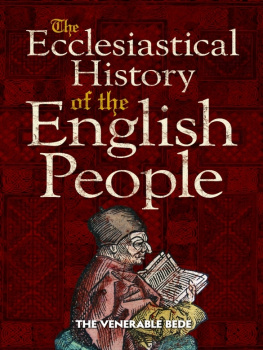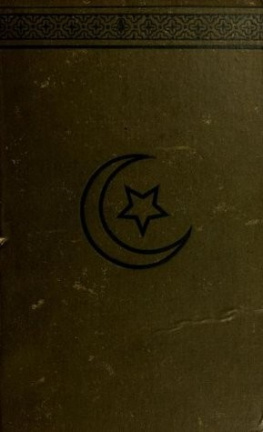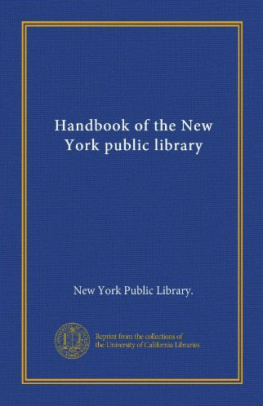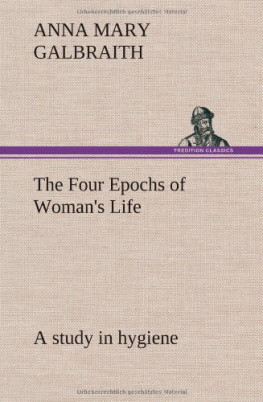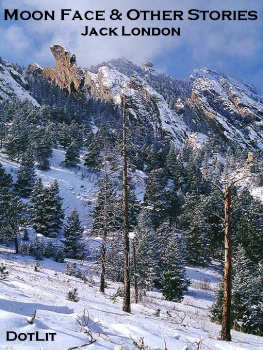Scudder - the christians daily walk
Here you can read online Scudder - the christians daily walk full text of the book (entire story) in english for free. Download pdf and epub, get meaning, cover and reviews about this ebook. year: 2011, publisher: Primedia eLaunch, genre: Science. Description of the work, (preface) as well as reviews are available. Best literature library LitArk.com created for fans of good reading and offers a wide selection of genres:
Romance novel
Science fiction
Adventure
Detective
Science
History
Home and family
Prose
Art
Politics
Computer
Non-fiction
Religion
Business
Children
Humor
Choose a favorite category and find really read worthwhile books. Enjoy immersion in the world of imagination, feel the emotions of the characters or learn something new for yourself, make an fascinating discovery.
the christians daily walk: summary, description and annotation
We offer to read an annotation, description, summary or preface (depends on what the author of the book "the christians daily walk" wrote himself). If you haven't found the necessary information about the book — write in the comments, we will try to find it.
Scudder: author's other books
Who wrote the christians daily walk? Find out the surname, the name of the author of the book and a list of all author's works by series.
the christians daily walk — read online for free the complete book (whole text) full work
Below is the text of the book, divided by pages. System saving the place of the last page read, allows you to conveniently read the book "the christians daily walk" online for free, without having to search again every time where you left off. Put a bookmark, and you can go to the page where you finished reading at any time.
Font size:
Interval:
Bookmark:
the
ChristiansDaily Walk,
in holy
Security andPeace
by the
Rev. HenryScudder
It is well known that though Christianity was persecuted by the Jews from the veryoutset of its promulgation, it was some time before this religion provoked thewrath or the, intolerance of the Romans. The truth is, that on the part of thegovernment at Rome, there was a very general connivance at religion in all itsnumerous varieties. And the reason of this was, that under the system ofPaganism no one variety, or modification, was thought to exclude another. Eachcountry was conceived to have its local deityand each element of Nature tohave its own pervading spiritand each new god of the provinces over which theyextended their power, offered no disturbance to the habits of their previoustheology, but was easily disposed of, by the bare addition of another name tothe catalogue. At this rate there was no conflict, and no interference. Bylearning the religion of another country, they simply extended theiracquaintance with the world of supernatural beings; just as by the conquest ofthat country, they extended their acquaintance with the visible and the peopledworld around them. In such a capacious and elastic creed as that of Paganism,there was room enough for all the superstitions of all people. The sincerestpossible homage for the gods of one territory, admitted of an homage equallysincere for the gods of another territory. Nay, by the same solemn act ofworship, they may, each and all of them, have been included, at one time, inone general expression of faith and reverence. And this is the whole amount ofthe boasted tolerance of antiquity.
We may easily perceive, how, inexception to this general spirit, Christianity, from being the object oflenity, and even of occasional protection by the Roman power, soon became thevictim of its fiercest persecutions. For a few years, its character andpretensions were not distinctly understood. It seems in truth, to have beenregarded as a mere speciality of Judaism, and even though it had partaken ofall the narrowness of the parent religion from which it sprung, yet would ithave continued to share in the same immunities, had it maintained the sameindolent contempt for the idolatry of the surrounding nations. But when it madea farther development of its spirit; when it began to be felt in the force ofits active proselytism; when it was seen, that it not only admitted of nocompromise with the articles of another faith, but that it aimed at the overthrowof every religion then in the world; when men at last perceived, that insteadof quietly taking its place among their much-loved superstitions, it threatenedthe destruction of them all; then, though truth and argument were its onlyweapons, did the success with which they were wielded as much offend andterrify the world, as if they had been the weapons of ordinary warfare; andthough Jesus Christ would have been welcomed to a share of divine honours alongwith other deities, were his followers resisted even unto blood, when theyadvanced his claim, not to be added to the list of those deities, but utterlyto discard and dethrone them.
Now, it may be thought that there can benothing analogous to this process in the present day, and within the limits ofChristendom. But the truth is, that what obtained among the literal idolatersof a former age, is still most strikingly exemplified by those of the present,who in the spiritual and substantial sense of the word, are chargeable with thewhole guilt of idolatry. There may be among us the most complacent tolerationfor a mitigated and misconceived Christianity, while there is no tolerationwhatever for the real Christianity of the New Testament. So long as it onlyclaims an assigned place in the history of man, while it leaves the heart ofman in the undisturbed possession of all its native and inborn propensitiessolong as it confines itself to the demand of a little room for its Sabbaths andits decencies, while it leaves the general system of human life to move asbefore, at the impulse of those old principles which have characterized themind of man throughout all the generations of the worldso long as it exacts nomore than an occasional act of devotion, while it suffers the objects of wealthand fame, and temporal enjoyments, to be prosecuted with as intense andhabitual a devotion as everabove all, so long as the services which it imposesare not other than the services which would have been rendered at all events tothe idol of interest, or the idol of reputation; then Christianity, so far frombeing the object of any painful recoil on the part of man, is looked upon, byvery many in society, as a seemly and most desirable appendage to the wholemass of their other concerns. It is admitted to fill up what would be felt as adisagreeable vacuity. The man would positively be out of comfort, and out ofadjustment without it. Meagre as his Christianity may be, the omission ofcertain of its rites, and certain of its practices, would give him uneasiness.It has its own place in the round of his affairs, and though what remains ofthe round is described very much in the way it would have been, had there beenno Christianity in the matter; yet would the entire and absolute want of itmake him feel, as if the habit of his life had undergone a mutilation, as ifthe completeness of his practical system had suffered violence.
And thus it is, that Christianity, in amoderate and superficial form, may be gladly acquiesced in, while Christianityafter it comes to be understood in the magnitude of its pretensions may beutterly nauseated. When it offers to disturb the deep habit and repose ofnaturewhen instead of taking its place among the other concerns and affectionsof a disciple, it proceeds to subordinate them allwhen instead of laying claimto a share of human life, it lays claim to the sovereignty over itwhen notsatisfied with the occasional homage of its worshippers, it casts asuperintending eye over their hearts, and their business, and their lives, andpronounces of every desire which is separate from the will and the glory ofGod, that it is tainted with the sin of idolatry,when it thus proposes tosearch and to spiritualize, with the view of doing away all that is old, and ofmaking every thing new, ancient Rome was never more in arms for her gods, thanmodern humanity is in arms for her obstinate habits, and her longingpropensities. And yet if Christianity would tolerate nature, nature would inreturn tolerate Christianity. She would even offer to her the compromise ofmany hours and many services. She would build temples to her honour, and bepresent at all her sacraments. We behold an exhibition of this sort every dayamong the decent and orderly professors of our faith; and, it is not till thisantipathy be provoked by a full disclosure of the spirit and exactions of thegospel, that the whole extent of that antipathy is known.
We may expatiate on the social or civilvirtues, such as justice, for example, without coming into collision with theantipathies of nature. Even worldliness herself may listen with an approvingear to the most rigid demonstration of this virtue. For though justice be arequired offering at the shrine of the gospel of Jesus Christ, it may also be,and it often is, both a required, and a rendered offering at the shrine ofhonour and interest. The truth is, that a man may have his heart fully set uponthe world; and a portion on this side of time may be the object in which herests, and upon which all his desires do terminate; and yet, he may not feelhimself painfully thwarted at all by the demand of an honesty the most strictand unviolable. A compliance with this demand may not break up his otheridolatries in the least. In the practice of a truth and an integrity asunlimited as any law of God can impose, may he be borne rejoicingly along onthe full tide of prosperity; and by every new accession to his wealth, bemultiplying the ties which fasten him to the world. There is many an intensevotary of gain, who will bear to be told that he should be perfectly fair andupright in the prosecution of it, and who will not bear to be told, that thevery intensity of this prosecution marks him out as a child ofearthlinessmakes it manifest, that he is striking all his roots, into a perishablefoundationproves him to be the victim of a disease, the symptoms of which liemuch deeper than in his external conductproves him, in short, to be unsound atheart, and that, with a principle of life which will survive the dissolution ofall that is visible, he, in strenuously labouring after its fancied interest,is fast heaping upon it the wretchedness of eternity. That morality whichbarely ventures to regulate the path that he is now walking toward the objectsof this worlds ambition, he will tolerate and applaud. But the morality whichdenounces the ambition, the morality which would root out the very feelingsthat hurry him onwards in the path; which bids him mortify his affections forall that this world has to offer; which tells him not to set his mind on anycreated thing, but to set his mind on the Creator, and to have nothing fartherto do with the world, than as a place of passage and preparation for an abodeof blessedness in heaven,the morality which tells him to cease his attachmentfrom those things with which he has linked the ruling desires, and all thepractical energies of his existence,such morality as this, he will resist withas much strenuousness as he would do a process of annihilation. The murdererwho offers to destroy his life will not be shrunk from in greater horror, orwithstood in a firmer spirit of determination, than the moralist who wouldforce from him the surrender of affections which seem to be interwoven with hisvery being, and the indulgence of which has conferred upon it all thefelicities of which he has yet experienced it to be capable. A revolution soviolent, looks as repulsive as death to the natural man; and it is alsorepresented under the image of death in the Scripture. To cease from the desireof the eye, is to him a change as revolting as to have the light of the eyeextinguished. To cease from the desire of the flesh is to crucify the flesh. Tocease from the pride of life, is to renounce the life of nature altogether. Ina word, to cease from the desire of the old man, is not to turn, but to destroyhim. It is to have him buried with Christ in baptism. It is to have him plantedtogether with Christ in the likeness of his death. It is not to impress amovement, but to inflict a mortification.
Next pageFont size:
Interval:
Bookmark:
Similar books «the christians daily walk»
Look at similar books to the christians daily walk. We have selected literature similar in name and meaning in the hope of providing readers with more options to find new, interesting, not yet read works.
Discussion, reviews of the book the christians daily walk and just readers' own opinions. Leave your comments, write what you think about the work, its meaning or the main characters. Specify what exactly you liked and what you didn't like, and why you think so.



